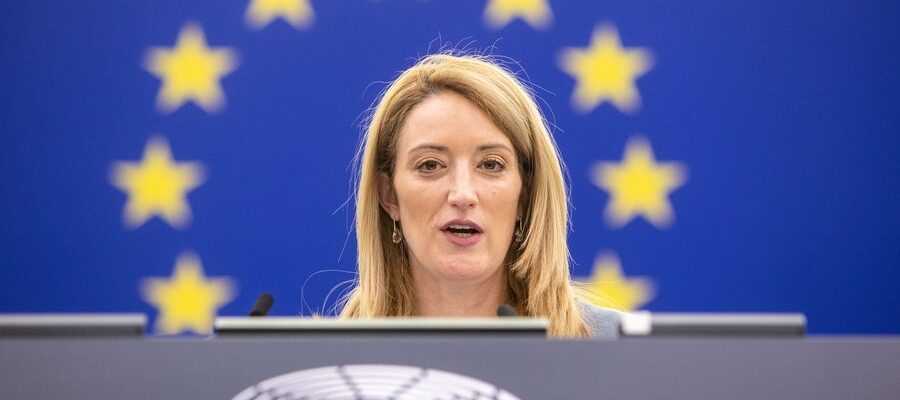MEPs agreed on Thursday on the plan to regulate the digital giants, by voting by a very large majority on Digital Services Act, or DSA.
After the Council of the European Union, at the end of November, the European Parliament, in turn, adopted without great difficulty all the measures aimed at combating illegal content and making platforms responsible for moderating their content – measures gathered under the Digital Services Act (DSA). From now on, France, which chairs the Council of the EU, has a avenue to negotiate with the Member States, the last stage before the application of the text, supposed to be finalized before the end of April, for an entry into force at the latest, scheduled for the end of 2023.
Content moderation, with a mandatory notification mechanism
Thursday, January 20, MEPs gave the green light to the opening of negotiations around the DSA with the Member States. It was by a large majority (530 votes for, 70 against and 80 abstentions) that the report on this European bill was voted, thus giving a mandate to the Council of the European Union. The latter is chaired by France, which greatly encourages the adoption of this regulatory project aimed at shifting the area towards a better Internet, and which can now negotiate more freely with the Member States, as we said earlier.
The first of the major missions of this DSA is to act directly on the moderation of content. In other words, the text aims to remove illegal content and prevent misinformation. It defines very precisely the responsibilities and obligations of online platforms, such as social networks and media, which everyone knows, and marketplaces. The latter will also have to verify the identity of the sellers.
The platforms concerned will have to put in place a procedure, a notification and action mechanism, making it possible to withdraw as quickly as possible any product, service or content that may be illegal. Hosting service providers will then have to enforce these claims, “ without undue delay, taking into account the type of illegal content notified and the urgency of action “, specifies the regulation, which also imposes a non-arbitrary and non-discriminatory treatment of these notifications, respecting above all the freedom of expression.
New obligations imposed by Parliament
The largest online platforms will be subject to more specific obligations, in particular because of the impact that the rapid and massive dissemination of harmful and illegal content can have. On the one hand, the DSA intends to strengthen the fight against harmful content but also the fight against the spread of false information, by setting up systems and measures to mitigate risks, or independent audits.
Be careful all the same, because the DSA validated by the European Parliament has undergone certain modifications compared to the version dubbed by the Council of the EU. For example, small and micro enterprises will be exempted from certain obligations arising from the text.
But above all, the relationship of users to major platforms will change somewhat. Some may in particular turn against digital services that do not meet their obligations and may thus seek compensation, using dedicated remedies. Likewise, targeted advertising will have to be even more transparent and informed, which means that recipients of online services will have to find out more easily how their data is monetized. Refusal of consent to data collection should be even easier for users, at least as much as acceptance (which logically makes us think of cookie walls ). Refusal of consent should not prevent Internet users from accessing a platform. This must offer a mode of advertising without tracking.
Privacy advocate Mozilla welcomes EU move
After the European Parliament’s vote, Owen Bennett, Senior Policy Manager at Mozilla, praised “ one step closer to a better internet “, indicating that this vote” set out a vision to meaningfully address harms that players like Mozilla and its allies say they suffer with big tech companies.
“We are happy to see that Parliament is giving researchers and watchdogs what they need to identify hidden harms, especially in relation to online advertising. We believe that the future of the latter must be more respectful of privacy, more transparent and give more control to individuals. DSA doesn’t solve everything, but it’s a major step in building a healthier advertising ecosystem. »
Mozilla sees with the DSA a unique opportunity for the European Union to push the digital giants towards a more virtuous path.
On the same subject :
Online hate: we know which sites, services and platforms will be subject to reinforced obligations

34